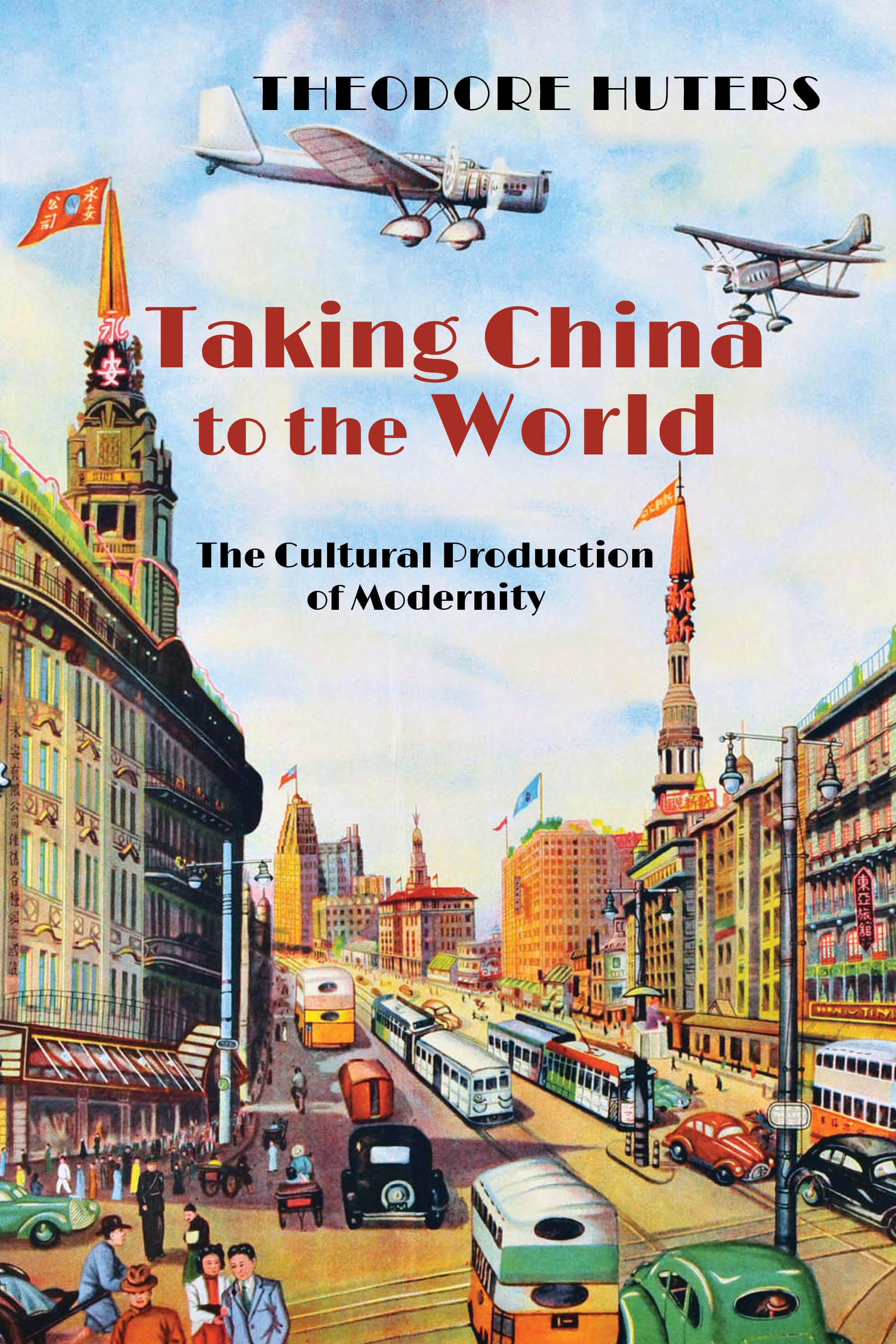Taking China to the World: The Cultural Production of Modernity
“Investigating the elusive discourse of modernity in China, Theodore Huters brings his formidable skills to bear in a new and thought-provoking way. This project analyzes changes in language use, literary development, translation, and publication, brilliantly arguing that during some twenty years from 1898 to 1920, cultural sensibility pivoted from the openness of the previous jindai period into a quest for the certainty that marked the May Fourth era. Huters’s book is a must-read for anyone hoping to grasp the complex dynamics of the modern in early twentieth-century China.” —Wendy Larson, University of Oregon
“Taking China to the World gets to the heart of China’s experience of modernity. It provides fine insights not only on how radical changes happened in the textbooks and at the press but also on the many other possibilities that were foreclosed. Still more importantly, Huters traces the shifting key concepts of ‘modern,’ ‘literature,’ and ‘vernacular’ and in so doing, locates the very heartbeats and heartaches of the Chinese cultural transformation in the early twentieth century. This is history writing at its best, illuminating the past as well as the present.” —Hu Ying, University of California, Irvine
"Harnessing his formidable erudition, which includes a solid grasp of Chinese-language scholarship, Theodore Huters highlights the forgotten diversity of Chinese literary and cultural thought at the turn of the twentieth century. In accentuating modes of open inquiry that were foreclosed, Taking China to the World reevaluates the constitution of China's cultural vanguard and uncovers the finer vicissitudes of modern Chinese intellectual history. A compelling account that is an essential read in a time when China is searching for its new global position."—Chan Cheow Thia, National University of Singapore
"This study masterfully revisits intellectual giants of the late Qing and early Republican periods (such as Yan Fu, Lu Xun, Wu Jianren, Liang Qichao, and others) to interrogate the concept of modernity in China from the perspective of new literature, the vernacular language, translation practices, and even the institutional role of Shanghai’s Commercial Press. It shows that the eras were characterized by a vibrant exploration about what it meant to be modern, which lasted until the May Fourth pursuit of iconoclastic narratives of certitude that eclipsed the earlier tolerance for spontaneity and contention." —Eugenia Lean, Columbia University
“Taking China to the World gets to the heart of China’s experience of modernity. It provides fine insights not only on how radical changes happened in the textbooks and at the press but also on the many other possibilities that were foreclosed. Still more importantly, Huters traces the shifting key concepts of ‘modern,’ ‘literature,’ and ‘vernacular’ and in so doing, locates the very heartbeats and heartaches of the Chinese cultural transformation in the early twentieth century. This is history writing at its best, illuminating the past as well as the present.” —Hu Ying, University of California, Irvine
"Harnessing his formidable erudition, which includes a solid grasp of Chinese-language scholarship, Theodore Huters highlights the forgotten diversity of Chinese literary and cultural thought at the turn of the twentieth century. In accentuating modes of open inquiry that were foreclosed, Taking China to the World reevaluates the constitution of China's cultural vanguard and uncovers the finer vicissitudes of modern Chinese intellectual history. A compelling account that is an essential read in a time when China is searching for its new global position."—Chan Cheow Thia, National University of Singapore
"This study masterfully revisits intellectual giants of the late Qing and early Republican periods (such as Yan Fu, Lu Xun, Wu Jianren, Liang Qichao, and others) to interrogate the concept of modernity in China from the perspective of new literature, the vernacular language, translation practices, and even the institutional role of Shanghai’s Commercial Press. It shows that the eras were characterized by a vibrant exploration about what it meant to be modern, which lasted until the May Fourth pursuit of iconoclastic narratives of certitude that eclipsed the earlier tolerance for spontaneity and contention." —Eugenia Lean, Columbia University

Publisher
Cambria Press
ISBN
9781621966166
Publication date
1 Jan 2022 – 30 Nov 2022
Specialisation
Humanities
Theme
Society
National politics
Media
Literature
History
Region
China